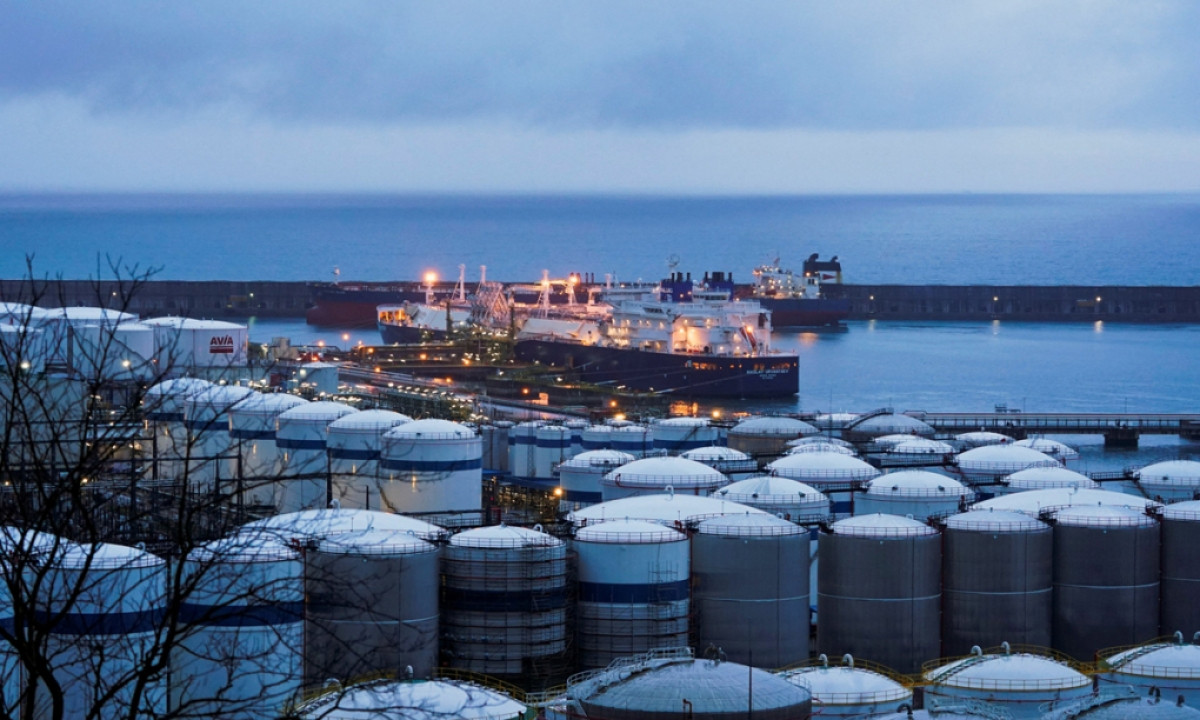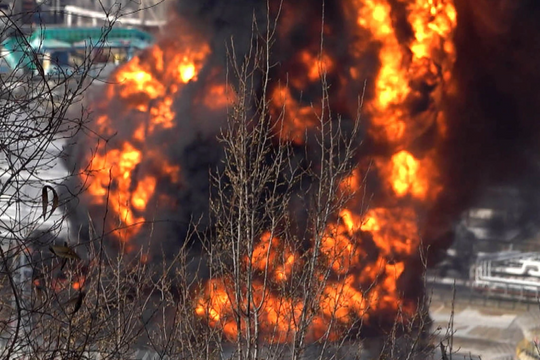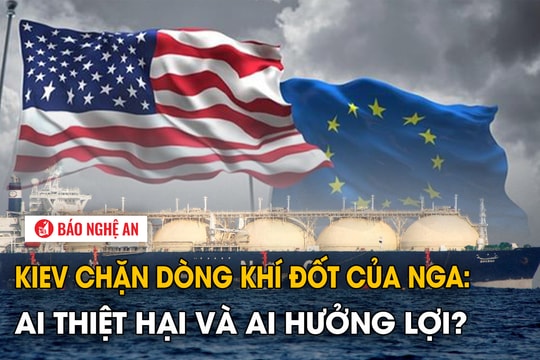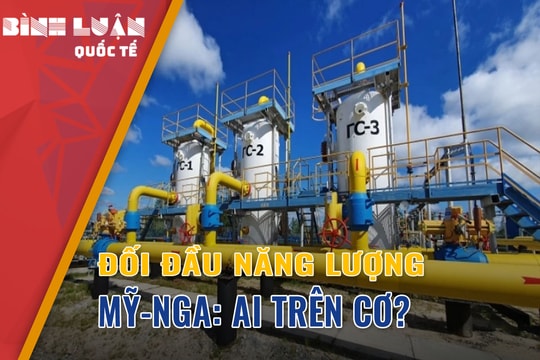Europe gives up Russian gas, who will Moscow sell energy to?
In the coming period, Europe will try to reduce its dependence on energy supplies from Russia. As an oil and gas superpower, Moscow needs to find new markets, but its options may be limited.
 |
| Liquefied gas tanker Nikolay Urvantsev at the port of Boilbao, Spain. Photo: Reuters |
Russia is the world's largest exporter of oil and natural gas to global markets. According to the International Energy Agency, 45% of Russia's budget in 2021 will come from oil and natural gas revenues.
The European Union (EU) has long been Russia’s largest oil and gas customer. When it comes to natural gas, Europe’s role as Russia’s main market is even more pronounced. According to the US Energy Information Administration, nearly three-quarters of Russia’s total natural gas exports went to European countries in 2021.
The EU is moving rapidly to reduce its dependence on Russian energy in response to Russia’s military campaign in Ukraine, but the extent and ability of European countries such as Germany and Italy to wean themselves off Russian energy, particularly natural gas, remains a matter of debate.
However, if the European Commission's (EC) plan to achieve complete independence from Russian energy imports by 2030 comes true, Russia may need some new customers.
China and India will be potential buyers
Russia will likely focus on increasing sales to countries that have not yet imposed sanctions on Moscow, such as China. In terms of oil, China is Russia’s largest customer outside Europe, accounting for the majority of Moscow’s 38% of oil exports to countries in the Asia and Oceania region in 2021.
Russia is currently China's second-largest oil supplier after Saudi Arabia, but experts believe that Russia's goal in the coming years is to overtake Middle Eastern countries to become China's main oil supplier.
“What will be interesting in the energy market this year is how Russia is trying to shift its long-standing trade relationships from the Middle East to East Asia,” said Fernando Ferreira, geopolitical risk analyst at energy consultancy Rapidan.
Another major goal for Russia is to significantly increase the volume of oil it sells to India. The country of 1.38 billion people is the world's third-largest oil consumer, importing most of its oil.
Iraq, Saudi Arabia and the UAE were India’s biggest oil suppliers in 2021, while Russia accounted for just 2% of New Delhi’s oil imports. However, the situation is changing, with India’s purchases of Russian oil rising significantly in March.
While many Western countries intend to stop importing Russian oil, many Indian refiners hope to be able to buy this energy at a deep discount.
Margarita Balmaceda, an expert at the Davis Center for Russian and Eurasian Studies at Harvard University, said that two major Indian refineries have recently purchased large quantities of Russian Sokol crude oil, which comes from Sakhalin Island.
DW commented that there are still doubts about the extent and ability of countries like China and India to replace Europe's demand for oil and gas from Russia.
Ferreira said that oil-related trade relationships between Middle Eastern countries and countries like China and India have taken decades to build. “I think China and India would be wary of completely cutting off Chinese oil and gas and turning to Russia,” he said.
Another issue, Mr. Ferreira predicted, is how Western sanctions will affect Russia’s ability to buy the equipment and technology needed for oil production. “It will be difficult for Russia to maintain its supply levels without access to Western technology,” Mr. Ferreira said.
Russia does not easily change markets
It will be easier for Russia to find new markets for its oil than for its gas. While Russia can move oil to new markets relatively easily, it is not easy to move natural gas through pipelines, and Russia’s liquefied natural gas (LNG) production capacity remains limited compared to some other countries.
If Russia wants to replace Europe's gas market, its best hope is China. In February, Russia and China announced a 30-year deal for Moscow to supply gas to Beijing through a new pipeline.
Russia has also established close gas ties with Pakistan. Russia has agreed to build Pakistan Stream, a $2 billion pipeline that will transport LNG from the southern port city of Karachi to the north of the South Asian country.
“The reality is that these projects require significant financial resources, and without finance, they will not materialize,” said Ms. Balmaceda.
Ms Balmaceda added that, in theory, Russia could build new infrastructure to supply gas to China or India in the future, but that would require “huge investments” that seem unrealistic given Russia’s economic prospects.
Mr. Ferreira said that Russia’s only realistic option for gas in Asia would be through existing pipelines or a new pipeline between China and West Siberia. “This will take some time. So there is no short-term solution for where Russian gas is consumed,” Mr. Ferreira said.
The long-term consequence of failing to find buyers for its oil and gas is that Russia will no longer be a “major player” in the global energy market, according to analyst Ferreira.
“Russia simply will not be able to maintain its current position as an energy power, not because it does not have resources, but simply because it does not have markets to sell to,” Mr. Ferreira noted.
Balmaceda believes that Russian energy may be accepted back into the European market unless there is a strong enough coalition of anti-Russian energy groups, such as coal producers, renewable energy groups or LNG producers, that can convince policymakers to abandon Russian energy.
Ms Balmaceda noted that there were clear signs that some Middle Eastern and Eastern European countries such as Hungary and Serbia were ready to buy Russian gas in the future.
In 2021, Hungary signed an agreement with Russia to receive gas from Moscow through pipelines passing through Ukraine, and the pipeline from Russia to Türkiye across the Black Sea. On April 6, Hungarian Prime Minister Viktor Orban said that the country was ready to comply with Russia's request to pay for gas in rubles./.



.jpg)




